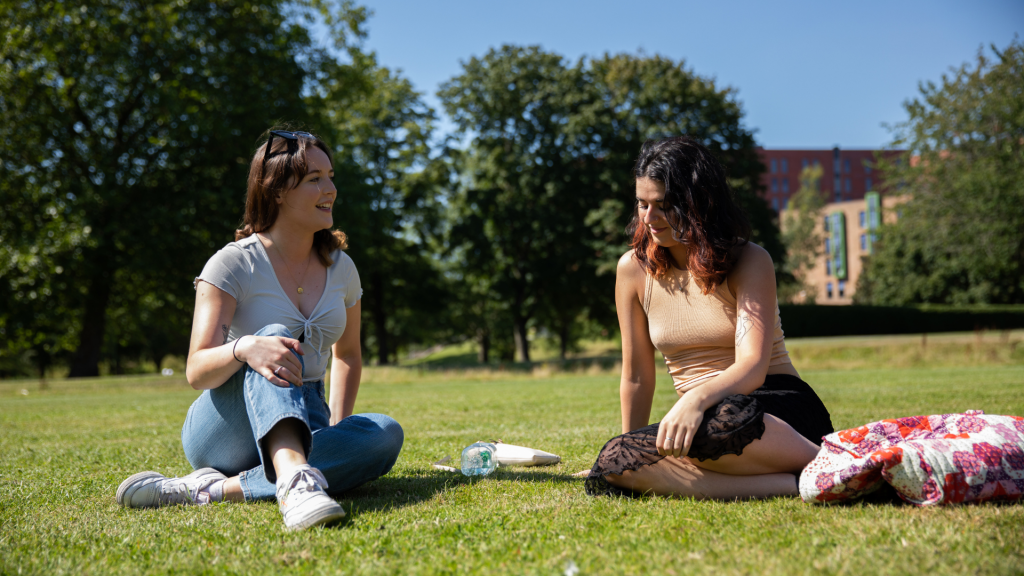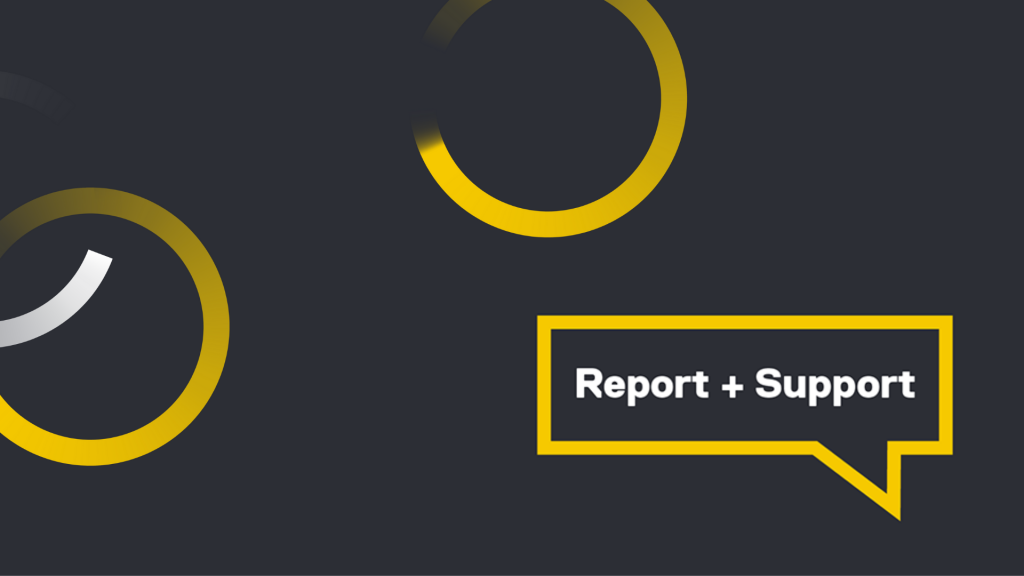Starting university often represents a fresh start and brings with it a new-found freedom, so it’s no surprise that many people first come out as LGBTQIA+ during this time. Being open and honest about how they identity publicly for the very first time can be a huge step and they may need the support of the people around them – that’s you! But do you know how to be an ally to your LGBTQIA+ friends and peers?
‘Ally’ is a phrase that gets thrown around a lot, but true allyship is important if we want to build a safer and more inclusive world. Here’s how you can be an active ally to the LGBTQIA+ students in our community and beyond.
Listen
Allyship starts with listening. By hearing the experiences of the LGBTQIA+ people in your life, you can better understand how the world views and treats LGBTQIA+ people and how you can best support them. It can be vulnerable sharing your story, so if your friend is taking the time to share their experiences with you, make space to hear their personal stories, ask questions respectfully where appropriate and let them set the tone for the conversation. If they are bringing it up in a casual way, respond in kind. If they are being more serious, make it clear that you are there to support them in any way you can. Make sure you’re listening to understand, not listening to offer advice (unless they are specifically asking for it).

Learn
Although your friends and peers may share their experiences with you, being a walking, talking guide to all things LGBTQIA+ can be exhausting. It’s important for allies to not just rely on the people in your life to tell you everything you need to know, but to commit to educating yourself about the LGBTQIA+ community’s history and the current issues they face. Here are some good places to start:
- Stonewall is the largest LGBT rights organisation in Europe and has been part of every major fight for LGBTQ+ rights since 1989.
- Salford Pride works to build a stronger, diverse community that celebrates inclusion and equality in our city and beyond.
- PinkNews is the number one LGBTQ+ news source worldwide and aims to inform, inspire change and empower people to be themselves.
- LGBT Foundation is a national charity delivering advice, support and information services to LGBT communities.
Speak
Your voice is powerful, especially as you may have a level of privilege your LGBTQIA+ peers do not. Most of us (including people within the LGBTQIA+ community) have some type of privilege – whether it’s racial, class, education, being cis-gendered, able-bodied or straight. Being privileged doesn’t mean that you haven’t had struggles or face your own challenges, it just means that there are some things you won’t ever have to think or worry about.
Use your privilege to speak up for your LGBTQIA+ friends and peers. If the people around you are using the incorrect pronouns, making insensitive jokes or using damaging stereotypes, call it out. But remember: the people around you may not know their words are harmful. If you feel comfortable, take the person aside and let them know why their words could be hurtful to someone in the LGBTQIA+ community – it could be the first time anyone has told them!
Not all situations call for you to speak, though. Your voice can be powerful, but not when it’s speaking over LGBTQIA+ voices. Sometimes the situation may call for you to use your privilege to speak first then offer the floor to someone in the LGBTQIA+ community. For example, you might have seen popular social media influencers doing this by inviting their less privileged friends or peers onto their platforms so they can share their experiences with their large audiences.
Act
Calling yourself an ally to your LGBTQIA+ friends and peers isn’t enough. To be a true ally and improve the lives of the people around you, you need to take action – whether it’s in big steps or small. Here are just a few practical actions you can take to be an ally to your LGBTQIA+ friends and peers.
- Introduce yourself using pronouns. By making this easy change, you’re helping to start the conversation about how to use pronouns and why they matter, and allowing trans people to introduce themselves without feeling pressured to bring up the use of pronouns first.
- Follow LGBTQIA+ organisations and individuals on social media – here’s last year’s winners of the British LGBT awards to get you started. Having these creators in your feed will help you to know what is important to the LGBTQIA+ community, stay up to date with the latest news and see where you can get involved.
- If you witness homophobia, transphobia or other discrimination, take action to make sure it never happens again. Report any incidents you experience or witness within our University community through Report and Support so we can act as quickly as possible to support you or others who may need it.

There you have it! By listening, learning, speaking up and taking action, you are helping to create a safe environment for the LGBTQIA+ students here on campus and beyond. Take the next step and pledge to be an active ally – plus you’ll pick up some more tips on actions you can take to stand up for the LGBTQIA+ community in your daily life. If your friend comes out to you, Medium’s guide has some handy do’s and don’ts or, for more information about the support for LGBTQIA+ students provided by the University, visit our website.




